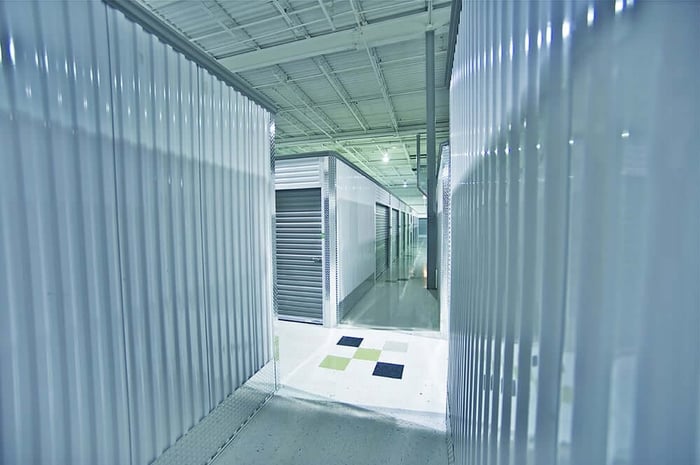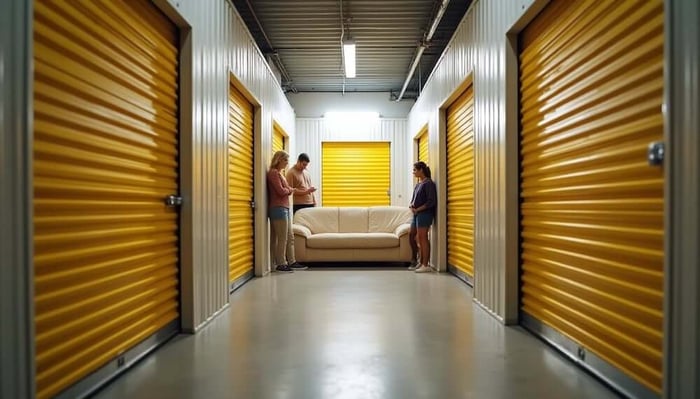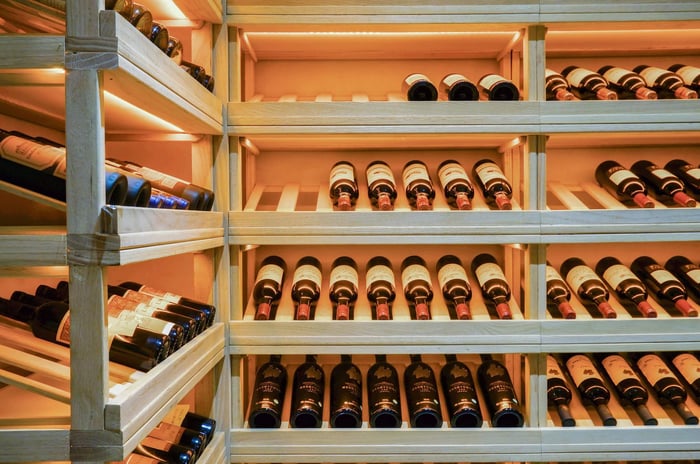Table of Contents
Climate-controlled storage is a type of storage unit that maintains a safe range of temperature and humidity levels, regardless of outdoor weather conditions. And while the answer may be obvious, we’re going to break down why these units are so useful, what’s typically stored in a temperature-regulated unit, and who should rent one.
What Does Climate-Controlled Storage Mean?
Climate-controlled storage means your belongings receive VIP treatment, protected from heat, cold, and humidity that could damage sensitive items like vinyl records, wood furniture, electronics, and more.
At Storage Star, our climate-controlled units maintain a steady temperature year-round, typically between 55°F and 85°F, ensuring your items are protected from freezing temperatures in winter and sweltering heat in summer. However, it’s not just about maintaining a consistent temperature: these units also regulate humidity, which is a game-changer when it comes to preventing mildew, rust, or musty odors.
Humidity control is essential during hot summers or rainy seasons, and it can make all the difference if you’re storing items for months at a time. The end result? Your valuables stay in great shape, no matter what the outside temperature is.
What’s Typically Stored in Climate-Controlled Units?
Climate-controlled units are a wise choice for anything valuable or meaningful to you. Here’s a quick rundown of common items people store in temperature- and humidity-controlled spaces:
Electronics and appliances: TVs, computers, audio equipment, and small kitchen gadgets are all vulnerable to moisture and temperature swings.
Wood and leather furniture: Protects against cracking, warping, and mold—perfect for antiques or family heirlooms with sentimental value.
Artwork, antiques, and collectibles: Paintings, sculptures, vinyl records, and stamp collections need stable conditions to stay in mint shape.
Documents, photos, and books: Paper is prone to yellowing, curling, or mildew if the air gets too damp or hot.
Musical instruments: Guitars, pianos, and brass instruments keep their tone and finish best in a climate-controlled environment.
Clothing, fabrics, and seasonal gear: Prevents musty smells, fabric damage, or mold growth on clothes, linens, or sports equipment.
Wine and specialty items: Anything with strict storage needs, especially wine storage or medical supplies, requires climate control.
If you’d hesitate to store it in a garage, attic, or shed, climate-controlled storage is probably the right fit.
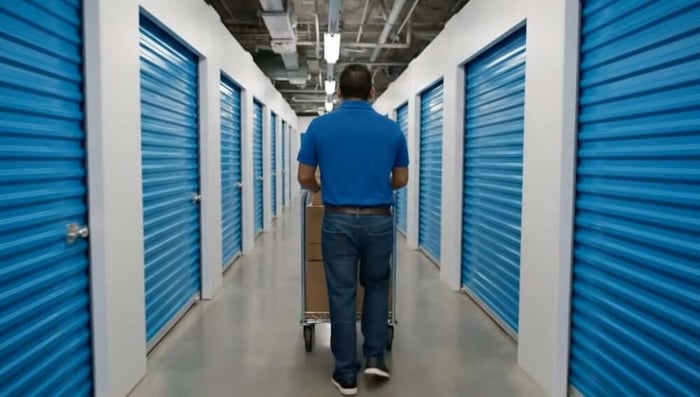
Who Should Consider Climate-Controlled Storage?
Climate-controlled storage isn’t just for collectors or businesses—it’s for anyone who wants extra peace of mind for more valuable or delicate items. You might want to consider it if:
You’re storing items long-term. The longer things sit, the more time the weather has to cause problems.
You live in a region with extreme weather. High heat, humidity, freezing cold, or major seasonal changes? Climate control is your best friend.
You’re storing valuables or irreplaceable items. Whether it’s family photos, inherited furniture, or business inventory, a climate-controlled unit is a small price to pay to protect your investment.
You’re a student or a renter. Moving out for the summer, studying abroad, or in-between apartments? Keep your stuff safe from campus humidity or winter chills.
You own a business. Many companies trust climate-controlled units for storing equipment, files, or inventory.
Unsure if you need climate control? The Storage Star team can help you determine the best option based on what you’re storing and how long you’ll need the space. Find a facility near you to get started.
| Item | Protected in Non-Climate-Controlled Storage? | Protected in Climate-Controlled Storage? |
| Wood Furniture | Only if properly prepared. Still a risk of warping, cracking, or mold | Yes – stable temp/humidity prevents damage |
| Electronics | No – risk of warping, melting, battery leaks, brittle parts, and moisture, leading to device failure | Yes - consistent climate will reduce risks |
| Leather Goods | No – prone to cracking, mildew, drying out | Yes – humidity control preserves quality |
| Artwork & Paintings | No - risk of warping, fading, and mold | Yes – protected from deterioration |
| Important Documents | No - can cause curling, yellowing, and mildew | Yes - will ensure they remain legible, intact, and professional-looking |
| Photos & Albums | No - can stick, fade, and curl | Yes - clarity, color, and image will be preserved |
| Musical Instruments | No - can crack, rust, pads can deterioate | Yes - steady climate will keep instruments in shape |
| Clothing & Fabric | No - musty odors, mold, and fabric damage | Yes - keeps fabric dry, odorless, and mold-free |
Vinyl Records & Media | No - warping and sticking | Yes - will remain playable and protected |
| Collectibles & Antiques | No - rapid aging, material damage | Yes - preserved in optimal condition |
| Appliances | No - can rust and electronics may fail | Yes - lasts longer with fewer issues |
| No - mldrew, moisture, and odors | Yes - will stay fresh and safe for use | |
| Wine | No - spoilage, corks will dry out | Yes - quality will be maintained |
Why Are Climate-Controlled Units More Expensive?
Climate-controlled storage units are a bit pricier than standard units, but there’s a good reason for it. These units are designed with extra insulation and advanced HVAC systems to regulate both temperature and humidity 24/7, which uses more energy and technology than regular storage solutions. That slight increase in monthly rent provides a significant boost in protection, saving you from costly damage, repairs, or replacement.
Think of it as insurance against heat waves, deep freezes, and humid days. For many customers, especially those with irreplaceable items or long-term storage needs, the extra investment is well worth it.
Storage That’s Not Too Hot, Not Too Cold, Just Right.
If you want to keep your belongings in like-new condition, climate-controlled storage is the way to go. Not everyone needs it, but if you’re on the fence, ask your local Storage Star facility for guidance - or contact us today! Our team is always happy to help you choose the perfect space for your stuff!
FAQs
What is the temperature range of climate-controlled storage units?
Storage Star keeps climate-controlled units between 55°F and 85°F.
What can high humidity do to stored items?
High humidity in a non-climate-controlled self-storage unit can lead to excessive moisture buildup, which puts your belongings at risk for mold, mildew, and warping, especially for sensitive items like furniture, electronics, and documents. Without a humidity-controlled storage environment, fluctuations in the humidity range can cause photos to curl, wood to swell, and fabrics to develop odors.
How can extreme temperatures affect belongings?
Extreme heat and freezing temperatures can cause major damage in non-climate-controlled storage units. Drastic temperature changes can cause wood furniture to crack, electronics to malfunction, or plastics to become brittle. In regions with harsh winters, a lack of heated storage can be just as damaging as summer’s extreme heat.
What is climate-controlled storage best for?
Climate-controlled storage is ideal for protecting temperature-sensitive items, like electronics, wood or leather furniture, artwork, antiques, important documents, musical instruments, photos, and collectibles. It’s the top choice for anyone storing valuables for long-term or in areas with extreme seasonal weather conditions.
Do I need a temperature-controlled unit if I’m storing items for less than a year?
That depends. You might not need a temperature-controlled unit if you’re only storing basic household items for a few weeks, especially during mild seasons. But if you’re storing anything sensitive (electronics, wood furniture, artwork, or important documents) or if your area experiences extreme temperatures or high humidity, a climate-controlled unit is still the safer bet, even for short-term storage. It all depends on what you’re storing, the local climate, and the season
Is climate-controlled storage available in all unit sizes?
Not all of our units are climate-controlled. Some Storage Star locations have a wide range of heated and air-conditioned storage options, while other locations don’t have climate control. Find your local storage facility to see what’s available in your area.
How much more does climate-controlled storage cost?
Temperature-controlled storage can cost up to $10–$30 or more per month than standard units, but the extra protection often saves you money in the long run. Learn more about how much storage units cost.
